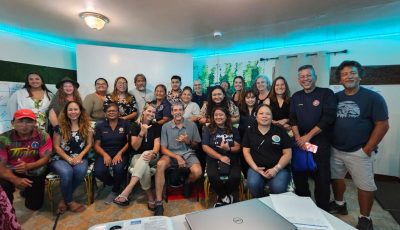Babauta: KCHC may lose grant, federal health center designation
Critical healthcare services and programs that are going down because of administrative misunderstanding and property ownership dispute may likely cause the Kagman Community Health Center to lose its grant and designation as a federally qualified health center under the Health Resources and Services Administration, according to former governor Juan N. Babauta Wednesday.
KCHC opened its doors to patients on April 5, 2013, which made the CNMI the last U.S. jurisdiction to receive funding under Section 330 of the Public Health Service Act for a community health center.
Babauta said funding for KCHC comes from the Health Resources and Services Administration.
The Saipan and Northern Islands Legislative Delegation decided last Monday to look into the recent closure of KCHC.
In a statement, Commonwealth Healthcare Corp. CEO Esther Muña said that KCHC closed since last April 27 not due to conflicts with CHCC, but under the prerogative of Dr. Katherine Elstun, who is currently the KCHC medical director.
Muña replaced Babauta as CHCC’s CEO in April 2013.
Babauta said the closure of KCHC is essentially foreclosing and denying the approximately 15,000 residents of Kagman and the surrounding areas access to critically need primary healthcare services that are 100 percent federally funded by HRSA.
Babauta said the problem can be easily resolved with the administration’s intervention by issuing an executive directive to address the property dispute in favor of KCHC.
Because of the critical nature and urgency of the situation, Babauta said the administration should immediately convene an emergency meeting with the CHCC’s board to resolve the administrative dispute between KCHC and CHCC.
“Right now, it’s all talk and no action while the residents of Kagman are being denied access to essential primary healthcare that they deserve,” the former governor said.
Babauta said the Kagman community and the surrounding areas face serious health issues such as high rates of cardiovascular disease, diabetes, and very poor preventive care, including pre-natal care.
He said based on other health information submitted to HRSA in the grant application, Kagman suffers from high childhood and adult asthma rates, poor oral healthcare, and high alcohol and tobacco use among adults and teenagers alike.



























